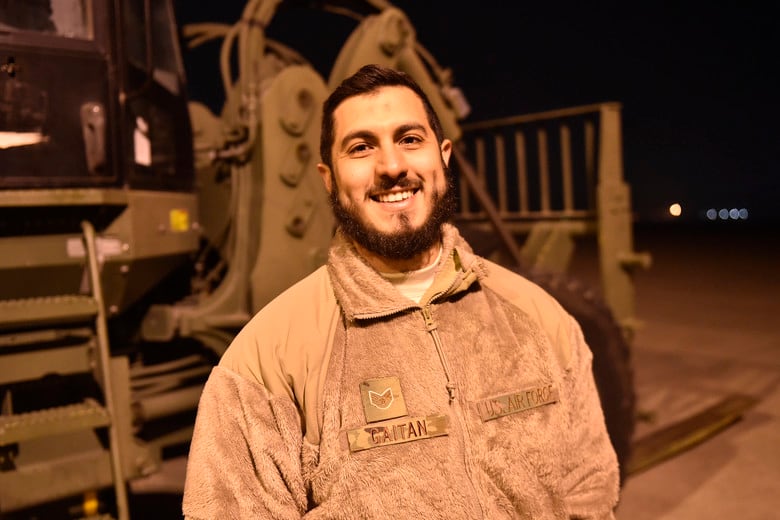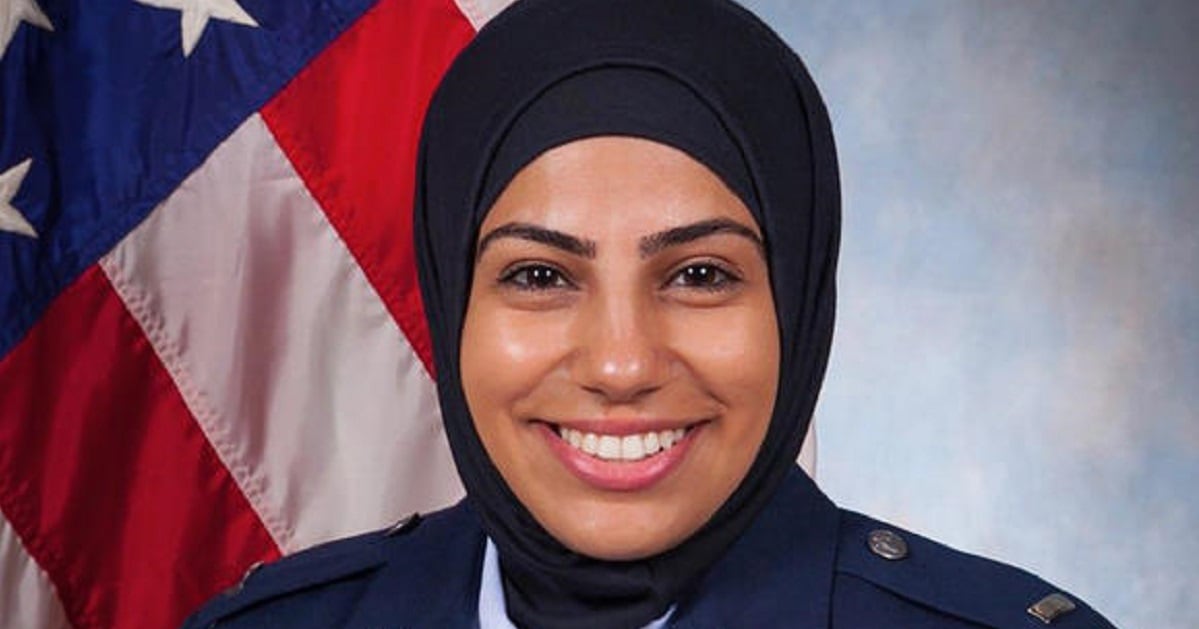Capt. Maysaa Ouza, the first Air Force Judge Advocate General Corps officer to wear hijab, is featured in a new short documentary from NBC’s Left Field this week.
Ouza, chief of legal assistance at Scott Air Force Base, Ill., is the daughter of Lebanese immigrants who migrated to Dearborn, Michigan, home to the country's largest mosque.
When she graduated law school, Ouza knew she wanted to serve in the armed forces and began exploring her options.
As the daughter of immigrants, she was called to defend "the very freedoms and liberties that have afforded her and her family so many opportunities," wrote Heather L. Weaver, senior staff attorney with the American Civil Liberties Union's Program on Freedom of Religion and Belief.
Ouza was told by Air Force recruiters that she could seek a religious accommodation and so entered the competitive process to become a JAG officer. But when it came time to sign her contract, she was told she could only request a religious accommodation after going through officer training, and that the granting of religious accommodation was not guaranteed.
“If that sounds familiar, it should,” Weaver wrote in the ACLU’s Speak Freely Blog in May 2018. "The Army made the same argument a few years ago when it refused to grant a Sikh college student a religious accommodation to enroll in ROTC with his religiously-mandated beard and turban. We sued, and in a landmark victory, a federal court ruled in 2015 that the Army couldn’t legally justify denying our client a religious accommodation.
RELATED

“Highlighting the court’s decision in that 2015 case, the ACLU, ACLU of Michigan, the ACLU of the District of Columbia, along with the law firm of Hammoud, Dakhlallah & Associates PLLC, sent a letter to the Air Force on behalf of … Ouza urging officials to reconsider their policy,” she wrote..
“To the credit of the Air Force, they reversed their decision and allowed … Ouza to join the JAG Corps with a religious accommodation. They also took steps toward approving and implementing a new policy that, once finalized, will hopefully help future recruits who need religious exemptions avoid the same dilemma.”
Air Force Capt. Rafael D. Lantigua, a Muslim chaplain also featured in the documentary, views himself and Ouza as bridge builders.
"The idea that people are just going to do away with their prejudices, that is not a realistic expectation,: he said. “You’ve got to open the door to allow other people to experience who we are.”
That process began immediately for Ouza.
“At officer training, I was the first Muslim that most of my colleagues had ever met,” she says in the documentary, noting that her fellow airmen peppered her with questions about being a Muslim and wearing hijab.
When she was awarded the “Airman of the Week” honor, her fellow trainees and instructors described her as “a true leader who will greatly contribute to the Air Force and anything she pursues.”
"Islam and the Air Force have more similarities than people think, Ouza said. “Discipline. Modesty. Justice. Valor. So, in a way, the hijab and the uniform both represent the same thing.”
.
